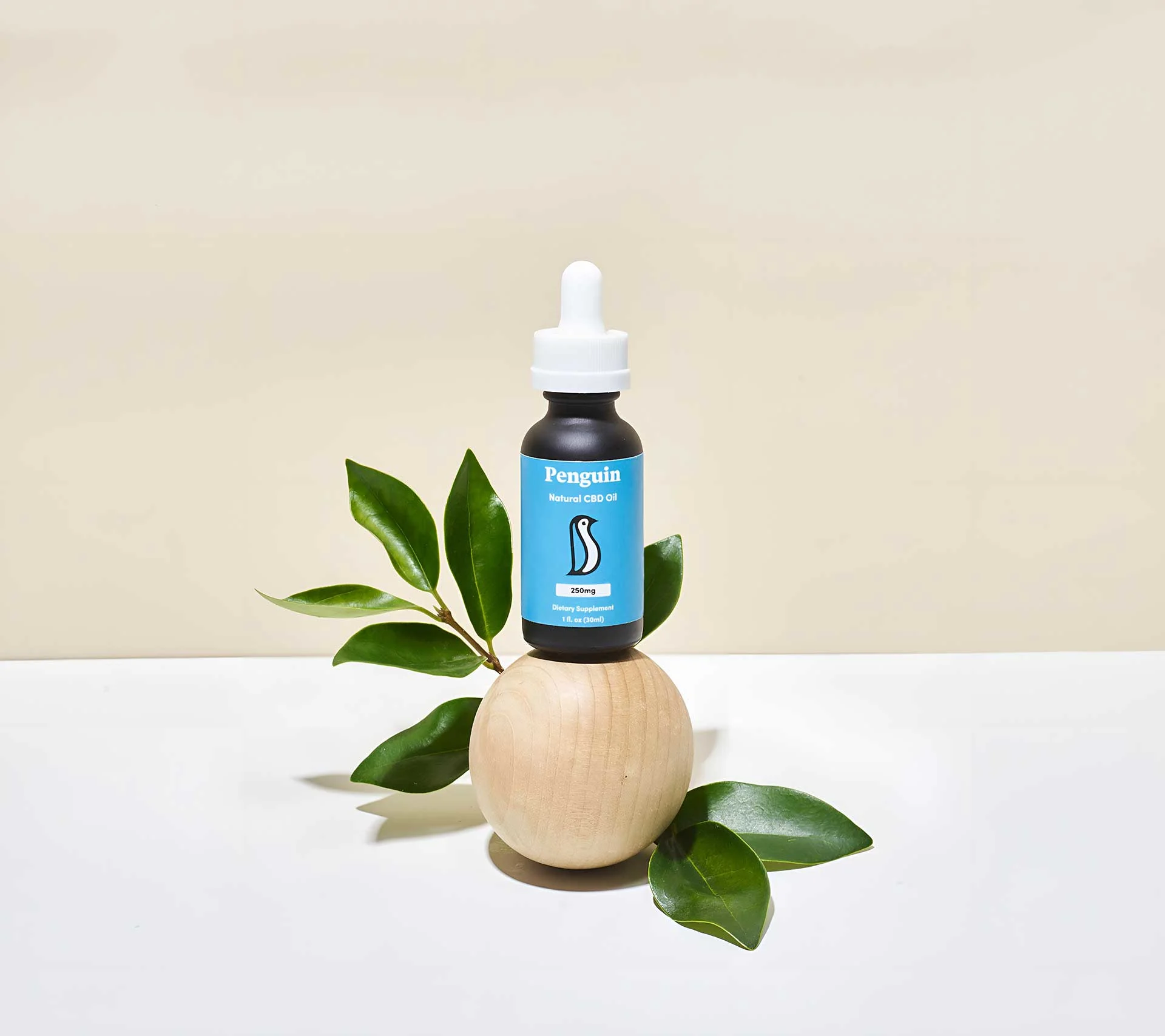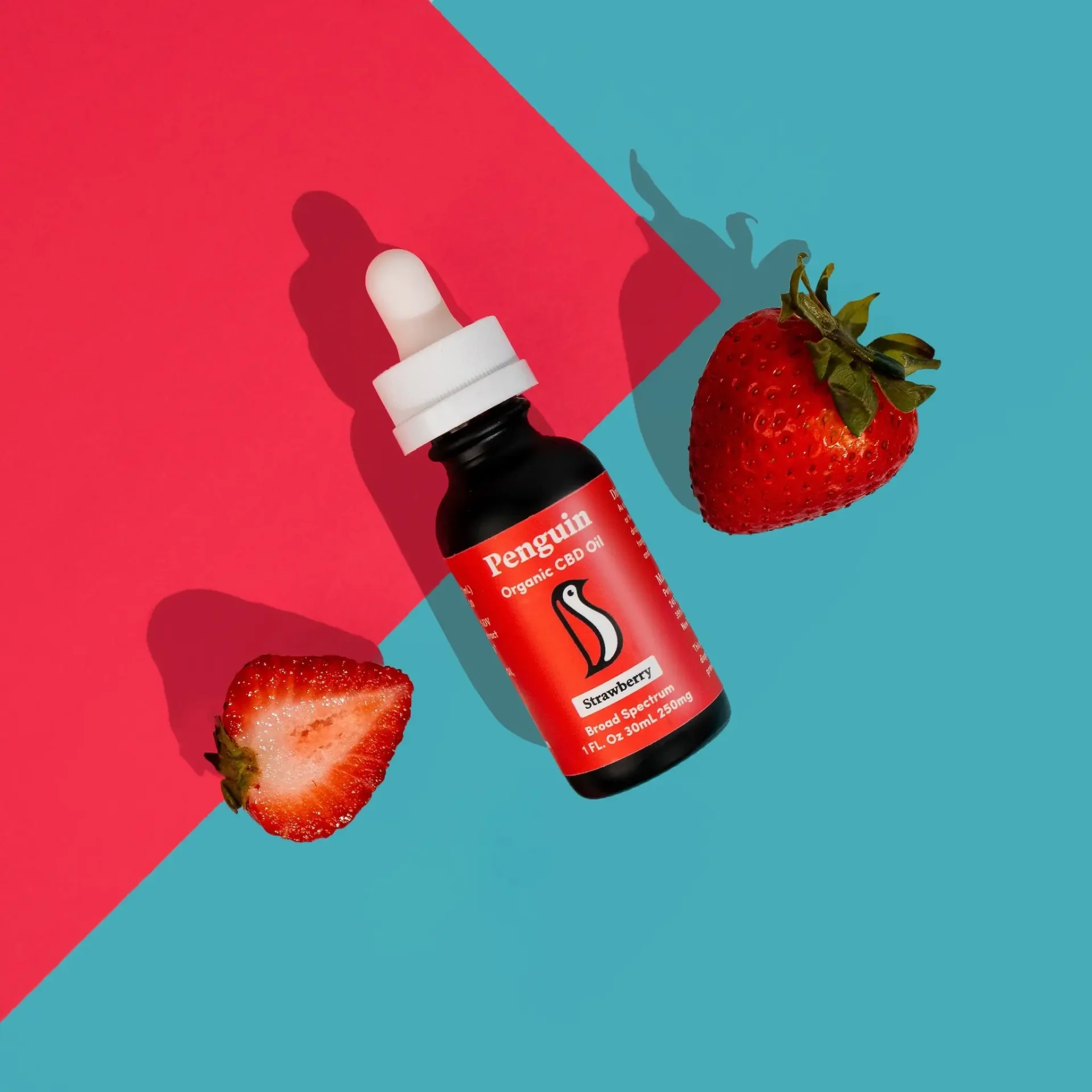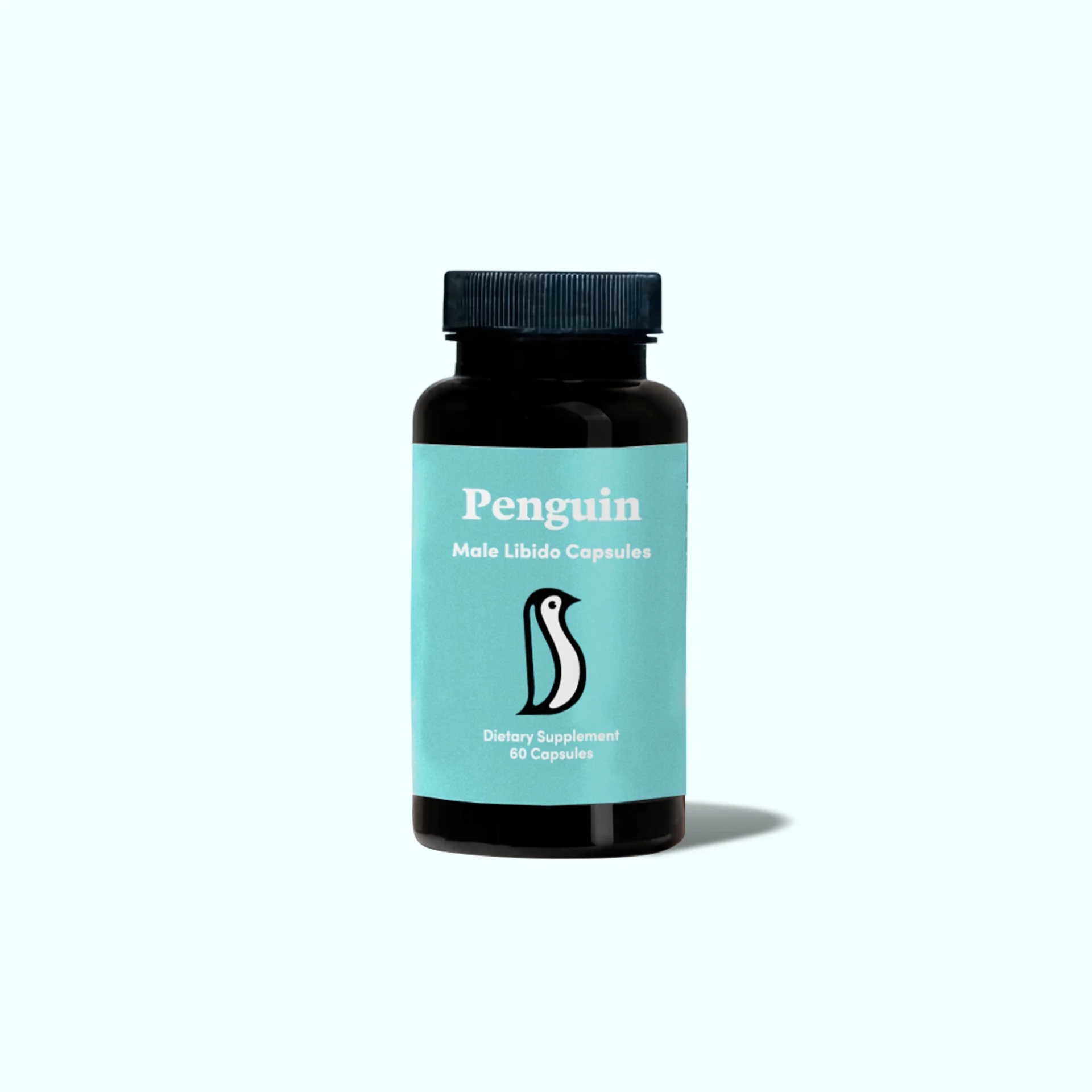What Is Full-Spectrum CBD Oil?
 By Penguin CBD
By Penguin CBDThere are plenty of options to choose from when shopping for CBD oils. In fact, it can be easy to get confused by all of the various terms that can be applied to the oil. Broadly speaking, there are three major types of CBD oil: full-spectrum, broad-spectrum and isolates. They may seem similar since they are all CBD oils, but in reality there are some big differences.
The cannabis plant produces over 100 different cannabinoids, but the most prevalent, and the most discussed, are CBD and THC. CBD has recently become extremely popular for its potential benefits. The variety and concentration of the cannabinoids in the oils will vary depending on the type of oil you use.
Full-spectrum CBD, as the name suggests, contains the full spectrum of cannabinoids and many plant compounds. This can be a positive thing, but there can be some downsides.
How Is Full-Spectrum CBD Oil Made?
Full-spectrum CBD oil is made by first harvesting the leaves and flowers of the hemp or cannabis plant. The harvested material is then dried and crushed into a powder. The oils are then extracted using solvents. The two most popular extraction methods used by reputable producers are CO2 extraction and ethanol extraction.
- CO2 Extraction: This is a process that uses carbon dioxide under high pressure in a cold environment to create a solvent that can extract the CBD and terpenes from the plant. This process is one of the most expensive because it requires a lot of equipment and a longer extraction process, but it will result in a safer product.
- Ethanol Extraction: Some companies may use pharmaceutical-grade ethanol to process the CBD. Ethanol is a high-strength alcohol that removes toxins from the cannabis plant. This method allows for the largest number of cannabinoids to be retained in the process.
There are not many regulations dictating how CBD oil can be manufactured, and the different extraction methods produce differing qualities of CBD oil.
Full-Spectrum Oils Have All the Cannabinoids. What Are Those?
Cannabinoids are natural phytochemicals found in the cannabis plant. They are formed through decarboxylation. This can be through heat, light or alkaline solutions. There are over 100 different cannabinoids that can be found in full-spectrum CBD oil. Here are some of the most common:
- THC (Tetrahydrocannabinol): THC is the compound found in cannabis plants that makes you feel “high.” FDA regulations say that there can only be a maximum of 0.3 percent THC in commercially sold CBD oil.
- CBD (Cannabidiol): CBD is the most common cannabinoid found in the hemp plant. It is nonintoxicating. It used to promote wellness in the body and provide a relaxing and energizing effect.
- CBG (Cannabigerol): This is the precursor compound to CBD and THC. It is also nonintoxicating, and is broken down in the plant to create other cannabinoids.
- CBC (Cannabichromene): This is a less common cannabinoid that is found in the plant and is similar in structure to CBD.
- CBN (Cannabinol): Another less common cannabinoid that is believed to cause a sedative effect on the body.
All of these cannabinoids, and many others, are found in full-spectrum CBD oil for sale.
Is Full-Spectrum CBD Oil Necessary?
Cannabinoids interact with the human endocannabinoid system (ECS) and each cannabinoid interacts with the ECS differently. The ECS is found in the brain, the nervous system and the immune system. It helps regulate a number of functions in the body.
According to some studies, cannabinoids can work in tandem to provide more benefits. Some believe that when they work together the effects become stronger or even work in unique ways. This is often referred to as the “entourage effect.”
The cannabinoids may be able to work together to increase the oil’s ability to improve health and alleviate certain issues. If you want to improve your chances of experiencing the entourage effect, it is recommended that you purchase full-spectrum CBD oils because they contain the needed cannabinoids.
But what about THC? It binds with the ECS receptors and produces the intoxicating “high.” This may cause a variety of side effects, one of which can be paranoia. CBD does not bind with the ECS receptors and has no psychoactive impact. This has the beneficial effect of reducing the THC binding, which alleviates some of the stronger reactions and helps reduce the feelings of paranoia.
The oils advertised as full- or broad-spectrum can take advantage of the entourage effect, but broad-spectrum oils do not contain THC. So, if you want to avoid THC entirely, stay away from full-spectrum oils.
What Are the Different Types of CBD Oil?
There are three major variations of CBD oil.
- Full-Spectrum Extract: This is an oil that has been extracted from either hemp or marijuana and, as the name suggests, it contains the full spectrum of cannabinoids. These oils contain up to 0.3 percent THC and have gone through the least amount of extraction and filtration.
- Broad-Spectrum Extract: This is a CBD oil that bridges the gap between CBD isolates and full-spectrum extracts. It is produced in the same manner as CBD isolates, but it still contains a variety of other cannabinoids. The only cannabinoid not present in a broad-spectrum extract is THC. It is similar to full-spectrum oils but is popular with people who do not want to ingest any THC.
- CBD Isolates: This is a pure CBD product. This means that it only contains CBD and has no other trace amounts of cannabinoid compounds. This oil is often clear and transparent. It does not take advantage of the entourage effect and many consider it to be less effective.
- Hempseed Oil: While hempseed oil is not technically a CBD oil, it is made from the same plant and contains fewer cannabinoids than oils marketed as CBD.
What’s the Difference Between CBD Oil and Hemp Oil?
CBD oil and hemp oil are both sourced from the same plant and are often mistaken for one another. It is important to understand the differences between the two types of oil. Full-spectrum CBD oil can come from the hemp plant but there is a big difference between them.
CBD is found in different locations on the plant, and each location has different concentrations. The leaves and flowers of the hemp plant contain the highest concentrations of CBD and are therefore used to extract CBD oil. Hemp oil is made using the seeds of the hemp plant, which contain very little CBD but do contain other useful substances.
CBD is commonly extracted from the hemp plant by a process called CO2 extraction. This is the use of CO2 as a solvent to separate the plant material from the cannabinoid compounds present in the plant. Hemp oil, on the other hand, is extracted by cold pressing the seeds until they produce the oil.
Hemp oil can be used for many different things. It is often used in beauty products like shampoos and soaps. It can also be used in cooking because it is high in omega-6 and omega-3 essential fatty acids.
Hemp oil and full-spectrum CBD oil are often mistaken for one another, especially if they are mixed in with other beauty products. The lack of FDA regulations means that beauty products do not have to list the concentration of CBD oil in their product. Some may plaster their bottle with information and pictures of cannabis leaves, but instead of a proper CBD oil it may just be hemp oil.
Is There THC in Full-Spectrum CBD Oil?
Yes, THC is found in full-spectrum CBD oil.
According to FDA regulations, CBD derived from hemp is legal. The 2018 Farm Bill placed the control of hemp under the supervision of the Department of Agriculture and made it an agricultural commodity. This prevented the DEA from interfering with any interstate commerce and allowed further research to be done on CBD oil.
The production of CBD oil is still under the reach of the FDA. In order for CBD oil to be sold legally, the amount of THC present in the oil must be 0.3 percent or less.
If the oil is taken according to instructions, this is a negligible amount of THC that will not cause any “high” or intoxication. Federal, state and local laws may differ, so it is important to check your local regulations to make sure that CBD oil is completely legal where you live. Full-spectrum CBD oil will always contain a small amount of THC.
If you want THC in your CBD oil for the “entourage effect,” you have plenty of options. The CBD and THC may be able to work together to increase the oil’s benefits. If you want to improve your chances of experiencing this effect, it is recommended that you purchase full-spectrum CBD oils because they contain the needed cannabinoids.
A major concern about using full-spectrum CBD oil is the effect that it could have on a drug test. There is always a chance that using CBD or hemp oil could cause you to fail a drug test. If you want to experience the “entourage effect” without THC, you should look at broad-spectrum CBD oils. They contain the same cannabinoids, terpenes and other plant compounds found in full-spectrum CBD oil, but do not contain THC.
What Are Terpenes?
Full- and broad-spectrum CBD oils contain terpenes, the natural compounds that are responsible for the taste, odor and color of every plant on earth. Terpenes are responsible for how a rose smells and how an orange tastes.
For the more science-minded, terpenes are aromatic metabolites found in the natural oils of plants. There are over 200,000 naturally occurring terpenes, and over 100 of them are found in the cannabis plant.
The production of different types of terpenes is determined by a variety of environmental factors. These can include temperature, humidity and the availability of light. According to some studies, some of the terpenes that are produced can have an effect on the ECS and could contribute to the entourage effect.
Here are some of the most common terpenes found in CBD oils:
- Limonene: This terpene is commonly found in the peel of citrus plants and is a major factor in their fragrance. Limonene is often used as a food flavoring and in skincare products.
- Myrcene: This is the most common terpene in the cannabis plant. It is also found in lemongrass, thyme and mangos. It contributes to the smell of recreational cannabis.
- Humulene: This terpene is found in the hops we use to make beer and herbs like sage and ginseng. Humulene gives these plants their signature aromatic smells.
- Linalool: This terpene occurs naturally in many essential oils like rose, lemon and spearmint. It is often used as a fragrance or for food flavoring.
Final Thoughts on Full-Spectrum Oil
There are many different factors that could influence the type of oil that is right for you. If you are looking for pure CBD, the isolate is the way to go. If you want the full effect of the hemp plant—the entourage effect—full-spectrum oils are the way to go.
If you are concerned about THC and passing a drug test but you still want to experience the entourage effect, broad-spectrum CBD oils are the best choice. At Penguin CBD, we use a broad-spectrum extract for our oil.
Full-spectrum oils have the highest number of plant compounds available and the least amount of human intervention in their production There is no right answer; the choice is yours.










